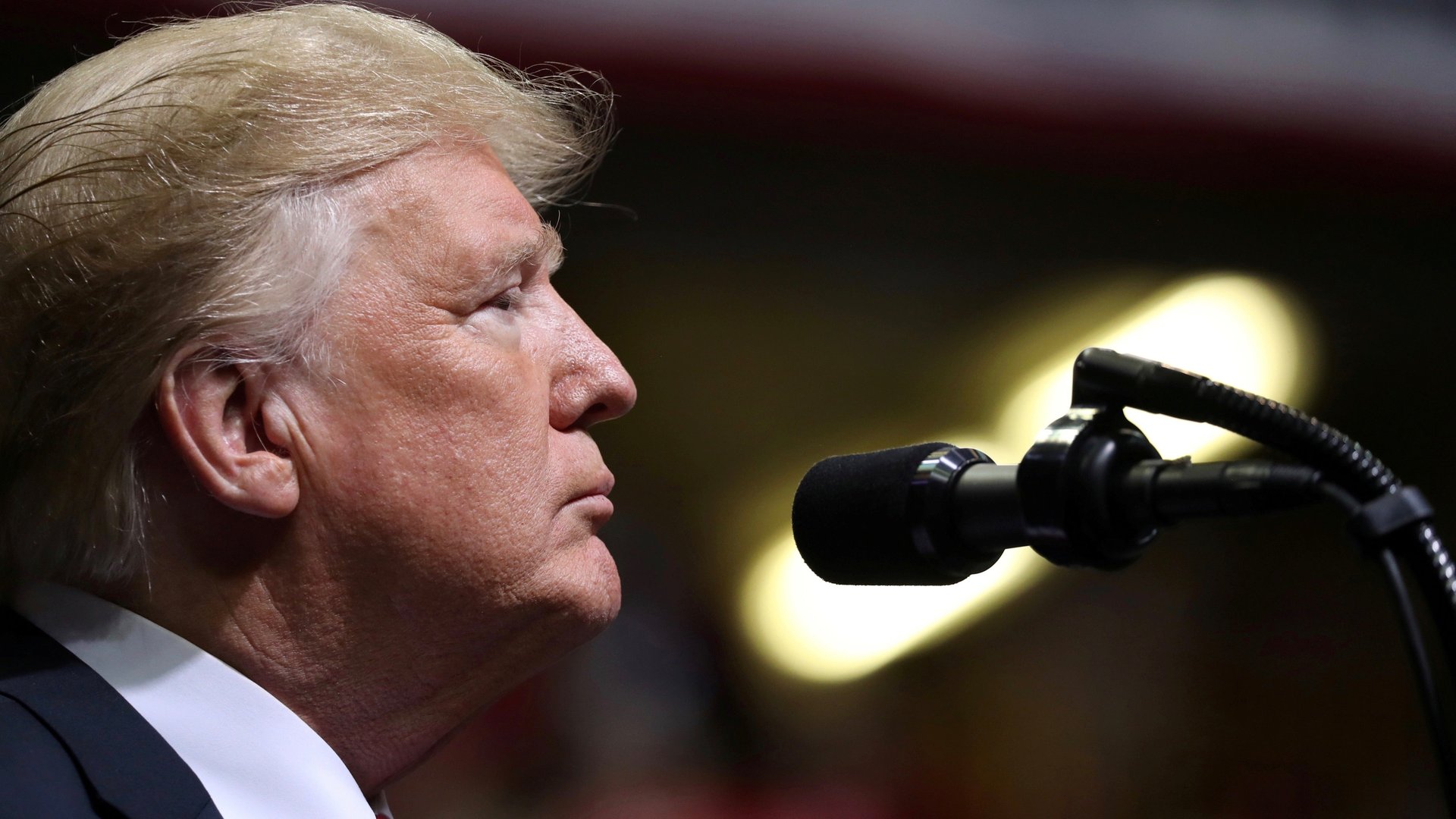Goldman Sachs says Trump has a better-than-even shot at reelection
Dear world: Please brace yourself for more of the same.


Dear world: Please brace yourself for more of the same.
If Goldman Sachs economists are to be believed, US president Donald Trump has a pretty good chance of being reelected in 2020. They put his odds at better than 50%.
According to a report released yesterday by Goldman economists Alec Phillips and Blake Taylor and covered by Bloomberg (paywall), the Republican president has two advantages that give him a lead over Democratic hopefuls. First, all incumbents begin with a 5-6% advantage over other candidates, they argue. Second, the American economy will be in good shape when voters take to the polls, they predict.
Although Trump’s built-in advantage, based on his incumbency, is somewhat offset by the fact that he has low approval ratings, Phillips and Taylor argue, they forecast the US economy will grow 2.5% this year and 2.3% in 2020. If they are right, the pace of economic growth will push unemployment down to 3.3% next year from the current 3.7%. And those figures will support Trump’s claim that he’s making America “great again” and give his base reason to ignore whatever he’s done to displease them in his first term.
That said, it’s too early to tell what will happen next year. Phillips and Taylor base their predictions on previous research that shows employment numbers and the economy in the second quarter of an election year are good indicators of how presidential campaigns turn out. But we’re only in the second quarter of 2019, which means a lot could still happen that would either boost or eliminate Trump’s advantage in 2020.
According to a March “report card” by CNN, assessing Trump’s economic policies over the first two years in office, he’s doing a pretty good job. He hasn’t delivered on promises he made when running for office to grow the GDP by 4%. Nor is it quite at the 3.2% the White House foresaw when crafting the 2020 budget. But the 2.9% rate in 2018 “was very good,” according to the report card, the highest since 2015.
Trump does deserve some credit for the current prosperity, says Alan Blinder, an economist at Princeton and former vice chairman of the Federal Reserve. But not all the credit. Blinder argued in the Wall Street Journal (paywall) in February that Trump’s success is built on his predecessor’s wise efforts. Barack Obama’s measures to end the Great Recession put Trump in a good position to lead an economic boom. Blinder characterized the period we’re experiencing now in the US as “the Obama-Trump economic boom.”
Democratic candidates will no doubt argue—as Blinder does—that Trump is benefitting from Obama’s initial efforts. However, it seems highly unlikely that Trump will concede as much. And when it comes to convincing voters, their own economic prospects around election time will likely play a substantial part in deciding whether to reelect him as president.
Looking for more in-depth coverage of Goldman Sachs? Sign up for a free trial of Quartz membership, and read our premium field guide on the future of Goldman Sachs.